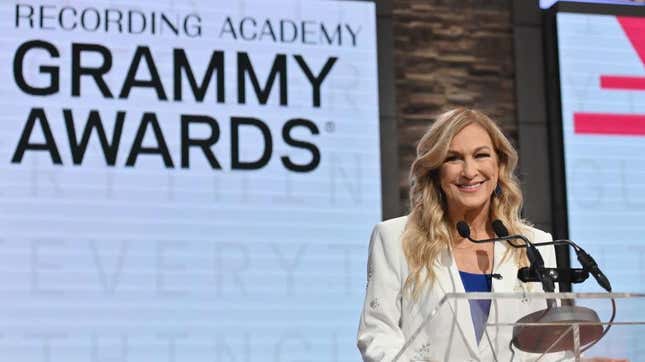

When the Grammys aired on Sunday, it ended up being an especially grim version of an awards show that has existed in a state of slow decay for years. Kobe Bryant’s sudden death loomed over speeches at the Staples Center, and a series of confounding performances from artists like Camilla Cabello and Blake Shelton, with Gwen Stefani, were a new low for a show that has been consistently ghosted on by music’s biggest artists, from Beyoncé to Taylor Swift. But as artists stepped up to the stage to accept their golden trophies, often weepy with joy, barely any of them mentioned or even alluded specifically to the crisis happening within the Recording Academy that chose them as winners.
For the past two weeks, Deborah Dugan, the former president and CEO of the Recording Academy, has been waging a war with the organization since she was fired just 10 days before the awards show. Filing an exhausting 44-page document to the EOCC last week, Dugan alleged intense sexism, racism, and harassment within the “boys club” organization, claiming that former CEO Neil Portnow raped a recording artist and that the Grammys voting process was corrupt. “If you open your mouth, you’re gone,” another female colleague, one forced to resign after being sexually harassed by a board member, told Dugan, as cited in the complaint.
-

-

-

-

-

-

-

-

-

-

-

-

-

-

-

-

-

-

-

-

-

-

-

-

-

-

-

-

-

-

-

-

-

-

-

-

-

-

-

-








































